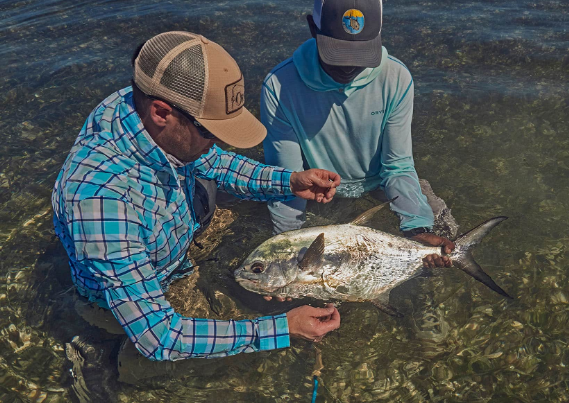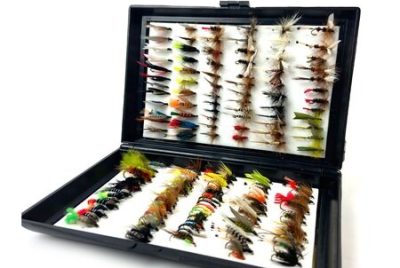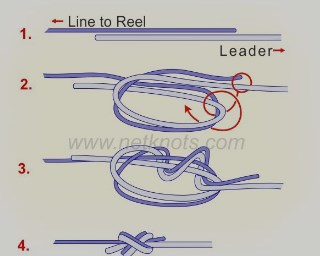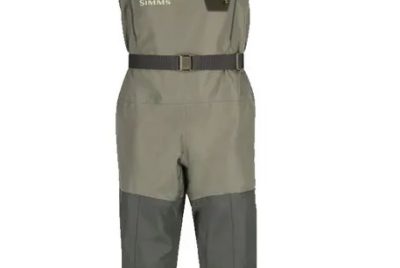Saltwater Fly Fishing
Introduction
Hey there, fellow anglers and outdoor enthusiasts! As someone who’s fallen hook, line, and sinker for the world of saltwater fly fishing, I can’t wait to share my passion and insights with you. Picture this: the sun kissing the waves, the salty breeze in your hair, and the thrill of the chase as you cast your fly onto the shimmering waters. It’s a dance between human skill and the unpredictable tides, and it’s a journey you won’t want to miss.
Getting Started: Gear and Essentials
When it comes to saltwater fly fishing, having the right gear can make all the difference. Start with a reliable fly rod and reel that’s designed to handle the challenges of saltwater environments. Opt for corrosion-resistant materials that can withstand the harsh conditions. Your choice of fly lines and flies should mimic the local baitfish and prey, ensuring a successful catch.
Location, Location, Location
The beauty of saltwater fly fishing lies in the diverse range of fishing spots available. From tranquil coastal flats to bustling piers, each location offers a unique experience. Research is key; look for prime fishing destinations renowned for species diversity and consistent catches. But remember, it’s not just about the fish – consider the surrounding environment, accessibility, and local regulations too.
Mastering Techniques for Success
Casting in saltwater presents its own set of challenges. The wind, currents, and the size of the fish all play a role in how you approach your cast. Practice your technique to achieve accurate and delicate presentations. As you gain confidence, experiment with different casting styles to adapt to changing conditions.
Understanding Saltwater Species
Variety is the spice of saltwater fly fishing. From bonefish to tarpon, each species has its own behavior and feeding patterns. Research the habits of your target species, understand their favorite prey, and match your fly patterns accordingly. This attention to detail can significantly increase your chances of a successful hookup.
Tides and Timing: The Crucial Connection
Tides hold the key to successful saltwater fly fishing. Understanding how tides affect fish movement and feeding can guide your fishing strategy. Certain species are more active during specific tidal phases. Plan your fishing trips around tide schedules to maximize your catch potential.
Conservation and Responsible Fishing
Our love for fishing comes with a responsibility to protect the marine ecosystem. Practicing ethical catch and release techniques ensures the survival of fish populations for generations to come. Handle fish with care, use barbless hooks, and avoid overfishing sensitive areas. By treading lightly, we contribute to the health of our oceans.
Experiencing the Thrill: Personal Anecdotes
Let me share a story with you. On a misty morning, as the sun painted the horizon with shades of orange, I found myself engaged in an exhilarating battle with a feisty permit. The fight was relentless, the rush indescribable. These are the moments that make saltwater fly fishing an addiction – the unexpected encounters that remind us why we cast our lines in the first place.
Benefits Beyond the Catch
Beyond the thrill of the catch, saltwater fly fishing offers serenity and connection with nature. As the waves lap against your waders and the seabirds call in the distance, you’ll find yourself immersed in the present moment. Moreover, the camaraderie shared with fellow anglers fosters friendships that endure beyond the fishing trip.
Conclusion
In the world of saltwater fly fishing, every cast is an opportunity to connect with nature and challenge yourself. The bond between angler and ocean is something truly special, and it’s a journey that rewards both the experienced and the novice. So, gear up, study the tides, and set out on a coastal adventure that promises more than just fish – it promises memories to last a lifetime.
FAQs
- Do I need previous fishing experience to try saltwater fly fishing? While some fishing experience can be helpful, saltwater fly fishing can be enjoyed by beginners as well. Consider taking a guided trip to get started.
- What types of fish can I expect to catch in saltwater? Depending on your location, you can target species like redfish, bonefish, tarpon, snook, and more.
- Are there any specific safety precautions I should take while saltwater fly fishing? Absolutely. Protect yourself from the sun with sunscreen and proper clothing. Stay hydrated and be aware of changing weather conditions.
- How do I learn proper casting techniques for saltwater fly fishing? Practice is key. You can take casting lessons from experienced anglers or instructors to improve your technique.
- Is it necessary to wade into the water for saltwater fly fishing? Not always. While wading can provide access to certain fishing spots, you can also fish from boats, piers, and shoreline areas.




